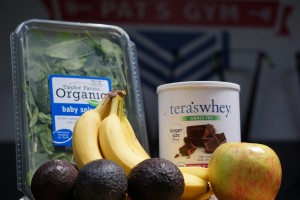 In this Knowledge Post, I’m going to focus on macronutrients and why they are so important. In this week’s post, I am going to discuss what are the macronutrients and why they are so important. In the nutrient post in 2 weeks, I will discuss why they are more important than calories and why you should be knowledgeable about them, and how you can determine which ones to eat.
In this Knowledge Post, I’m going to focus on macronutrients and why they are so important. In this week’s post, I am going to discuss what are the macronutrients and why they are so important. In the nutrient post in 2 weeks, I will discuss why they are more important than calories and why you should be knowledgeable about them, and how you can determine which ones to eat.
What is a macronutrient?
I will start off with the basics. There are three macronutrients which are:
Proteins
Fats
Carbohydrates
Some consider alcohol as the fourth macronutrient, but it is not essential. I also recommend that if you’re serious about working out and making gains, you stay away from this one. I won’t discuss alcohol in this post.
Protein – Protein will help build muscle and/or prevent muscle loss. It controls appetite and will make you feel full (more so than with fats or carbs). It also requires more energy than other macros to digest, thus effectively burning more calories while being digested. For these reasons, high-protein diets are great for fat loss and for building muscle mass, including lean muscle mass.
You will find protein in meat, fish, eggs, and dairy. Protein shakes are a good and quick way to take in more protein. There are many commonly cited “good” protein sources, like nuts or beans, that are good but not great for protein. The reason these sources aren’t great is because only about 15-20% of the calories in these foods come from protein. Almonds, for example, are 73% fat and only 14% protein. This is not to say you shouldn’t eat nuts or beans, but they aren’t packed with as much protein as people think. These types of fats are good fats. For more information on the types of fats, check out a previous knowledge blog, that thoroughly discusses fats and what to eat and avoid. Link: https://www.patsgym.com/knowledge/2790-2/
How much protein you get really depends upon your weight, body fat percentage and your goals. If you have low body fat or want to lose weight, you may consume about .05 grams per pound per day; however, if your goal is to bulk up or gain lean muscle mass you should go as high as 1.5-2 grams per pound.
Lean body mass is your total bodyweight minus your fat. For example, if you weigh 200 pounds and are 20% body fat, your lean body mass is 160 pounds. So, if you weigh 200 pounds and have 160 pounds of lean body mass, 0.5 grams per day would be 160*0.5 = 80 grams of protein.
With regard to proteins, make sure you get them from a quality source. I like natural, grass-fed (as opposed to grain fed), cage-free, no anti-biotics, and organic. Make sure you know what you’re consuming. I have written previous posts on the Knowledge page of my website that provide guidance of what to look for and what to avoid. https://www.patsgym.com/knowledge/protein/ For fish, stay with “wild” fish.
Fat – Fat is an essential nutrient that our bodies require to live; it assists in vitamin absorption, hormone regulation, brain function, and more.
You will get fat from meat, fatty fish, nuts, nut butters, oils and countless other sources.
How much you need depends on your weight, body fat percentage and goal – probably somewhere between 15% and 30% of your total calories should come from healthy fats. However, it can vary based on your total calories consumed and whether you are in a caloric surplus or deficit situation. Somewhere between 0.35-0.7g per pound of lean body mass is a good range.
When selecting fats, make sure you’re knowledgeable about these too. Again, I have written previous posts, which are on the Knowledge page of my website. Basically, stay away from too many saturated fats, and stay with polysaturated and a few monosaturated fats. Some have indicated that you should not have any or minimize saturated fats. However, saturated fats have been shown to have some benefits. It is a precursor to testosterone production, and it also improves brain functioning, nerve signaling and immunity.
Carbohydrate – Carbs are stored in the liver, brain, blood and muscles as glycogen. Our bodies use carbohydrates for energy.
You can find carbohydrates in many forms. You can get them from fruit, vegetables, grains, and many processed foods/drinks. I recommend sticking with carbs that come from fruits, legumes and vegetables, and staying away from highly processed grains and products, such as crackers, cookies, white breads and the like. If you are going to get a carb from something other than fruits or vegetables, then you should get it from whole grains and natural sources.
On carbs, you technically can live on zero carbs. But, bodybuilders or endurance athletes should consume consumed 700+ grams per day. So, the range is pretty wide. If you’re working out, I would recommend that you get about 35-40% of your macronutrients from carbs. 0.5-2 grams per pound of lean body mass is a good range, again, depending on activity level, weight, body fat percentage and goals.
It is important to remember that all calories come from macronutrients. I get a lot of questions about minerals or vitamins. Vitamins, minerals, and the like are micro-nutrients and do not contain calories. Now, supplements of proteins, fats, and carbohydrates do contain calories so be knowledgeable about what you’re consuming.
